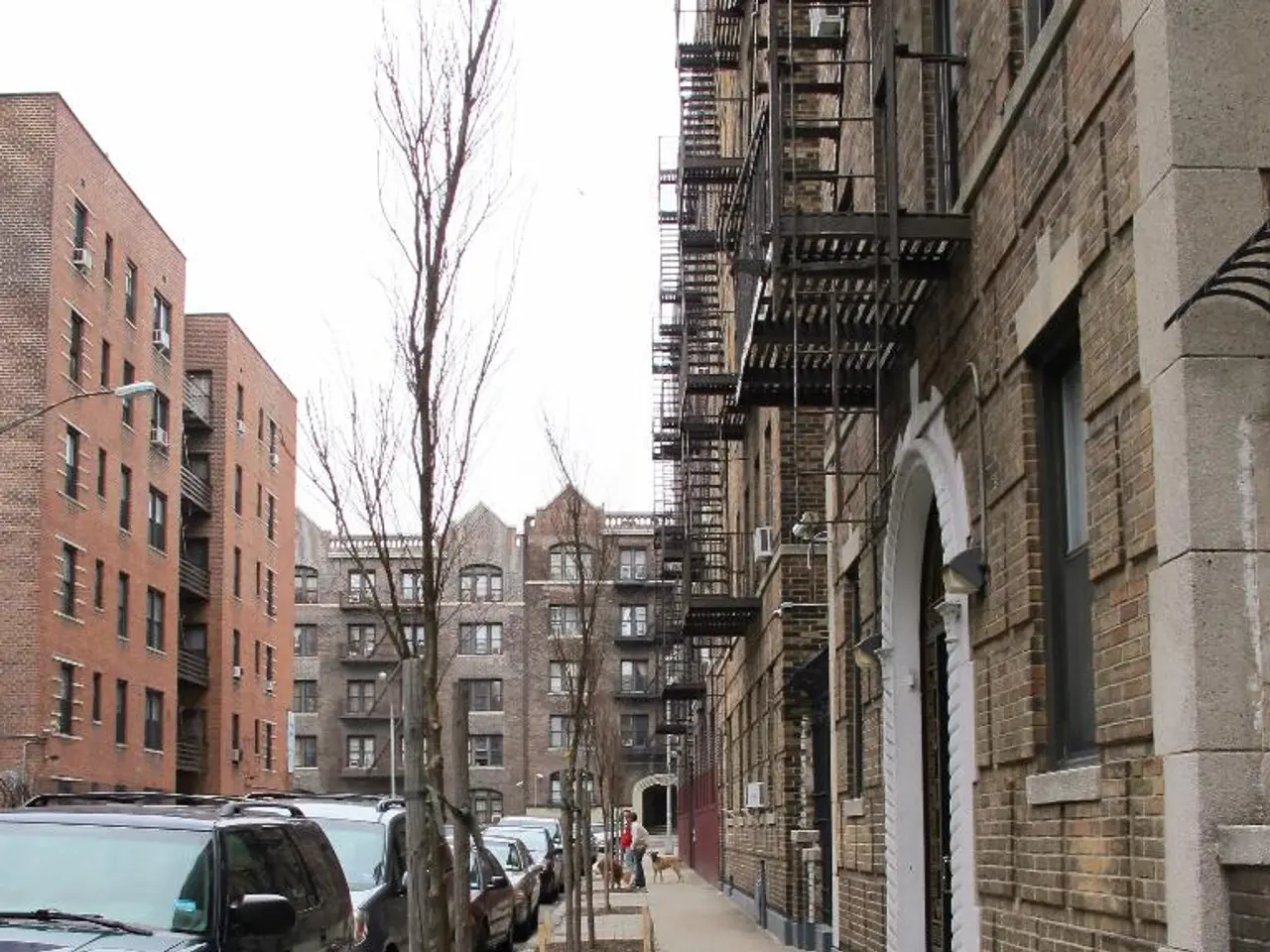Funchal Trails Behind in Yield from Real Estate Investments
Revised Article:
Let's dive into the real estate scene in Portugal as of Q1 2025. The average rental yield stand tall at 7.2%, a slight dip from last year's 7.3%, but still higher than Q1 2023's 6.6%. Compared to 2022, the national profitability has experienced a steady surge by 1.6 percentage points, promising a fairly stable real estate investment climate across the country.
Now, let's talk about the cities. While Funchal ranks third in rental prices at €15.9/m2, it's purchase prices skyrocket at €3,572/m2, dragging down the return on property investment to a mere 5.3%. On the other hand, Porto and Lisbon show better numbers with returns of 5.7% and 4.7% respectively. But the big winner in Q1 2025? Castelo Branco takes the cake with a whopping 8.6% gross rental yield. Other cities like Santarém (7.5%), Coimbra (6.9%), Braga (6.5%), Leiria (6.3%), and Évora & Viseu (6.1%) each bring solid returns.
However, Lisbon remains the least profitable city overall with a measly 4.7% return. Viana do Castelo and Aveiro aren't too far behind with 5.1% and 5.2% respectively.
The study by idealista calculates rental yields by dividing the average property sale price by the average rental asking price in each district capital. Now, let's crack open the hood on what makes this real estate climate chug along!
The Engine Behind Portugal's Real Estate Scene
The real estate market's dynamics in Portugal in 2025 have been shaped by multiple factors - from macroeconomic drivers to localized market forces. Two key factors to consider are high demand-supply dynamics and the transformative impact of the government's policy changes.
High Demand and Limited Supply
Portugal's housing market has been on a growth spree over the past few years. In Q4 2024 alone, housing transactions clocked in at €10.17 billion, reflecting strong investor trust and market robustness. With the demand high and supply low, particularly in key cities like Lisbon, prices have skyrocketed.
Government Policy Changes
The Golden Visa program, once a mainstay for foreign real estate investment, ended in 2025. This change has redirected foreign investment to sectors like capital transfers, job creation, research, and cultural heritage support. Although this shift has reduced speculative and foreign-driven real estate demand, it has also focused investment on long-term economic sectors.
Other Key Factors
- Demographic and market-specific trends have been playing a part, as well. Cities like Lisbon see growing demand for senior-friendly and accessible housing, boosting interest in retirement homes and associated foreign investment.
- Tourism growth, particularly in Lisbon, supports rental demand and strengthens the residential rental market.
- Regional diversification is worth mentioning. While Lisbon remains a hot spot, the Algarve region is gaining traction in alternative real estate asset classes, such as senior living and student housing, making it a high-growth and high-yield area in 2025.
This complex environment encourages investors to assess projects based on quality, location, and sectors that align with demographic trends and government incentives. Don't forget to keep an eye on Lisbon and the Algarve, the powerhouses of this Portuguese realty roller coaster!
- The study by idealista reveals that Portugal's real estate market in 2025 is driven by high demand-supply dynamics and the transformative impact of government policy changes, as evidenced by the €10.17 billion in housing transactions in Q4 2024.
- In light of the ending of the Golden Visa program in 2025, foreign investment in Portugal has shifted from real estate to sectors like capital transfers, job creation, research, and cultural heritage support, focusing investment on long-term economic sectors.
- Cities like Lisbon are seeing growing demand for senior-friendly and accessible housing due to demographic trends, which is boosting interest in retirement homes and associated foreign investment, thereby offering opportunities in certain real estate sectors.





